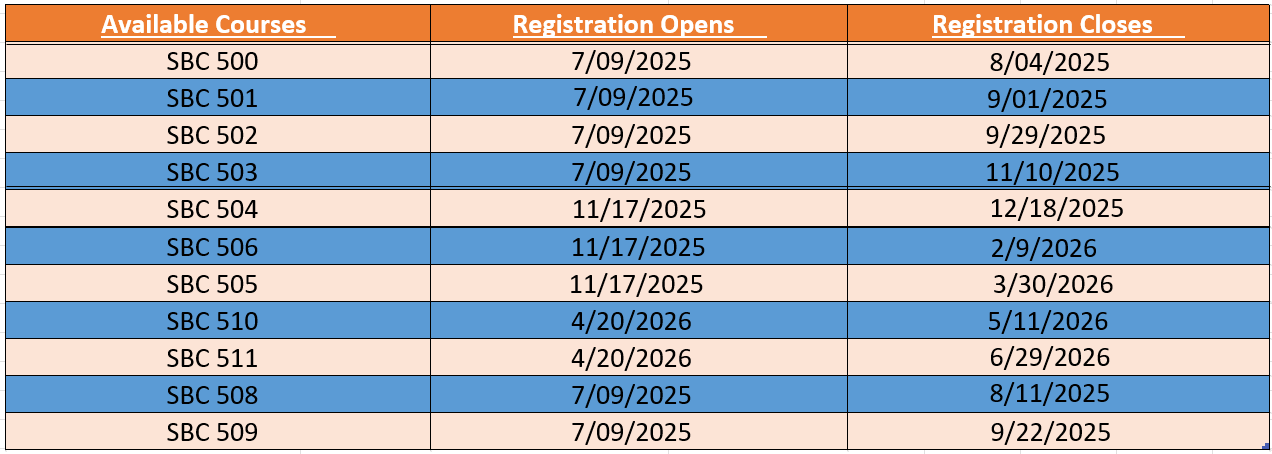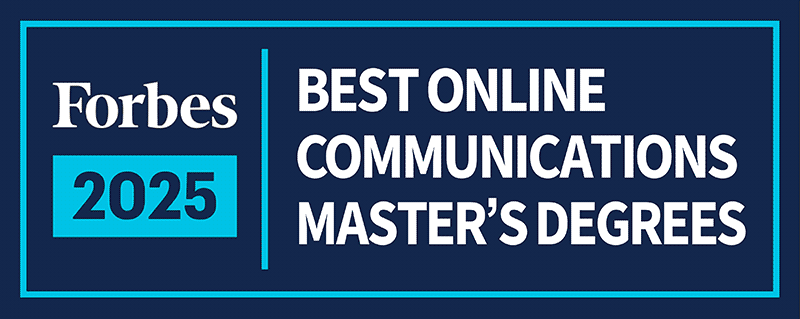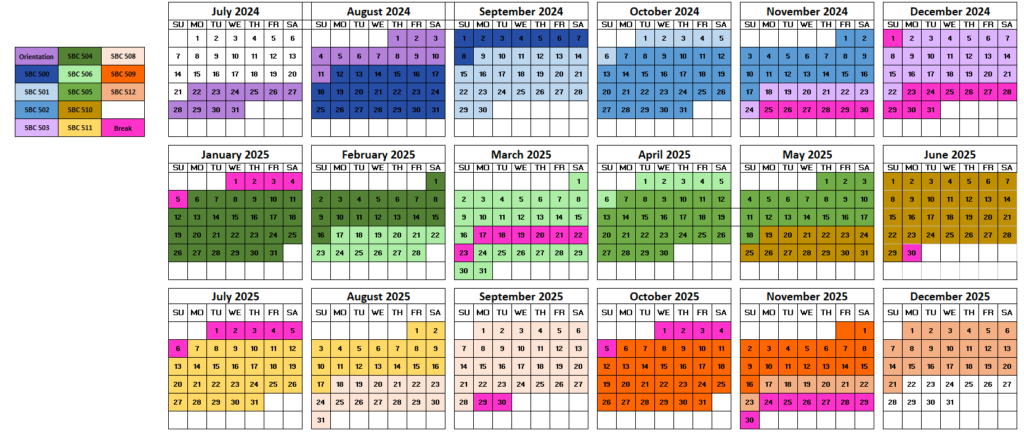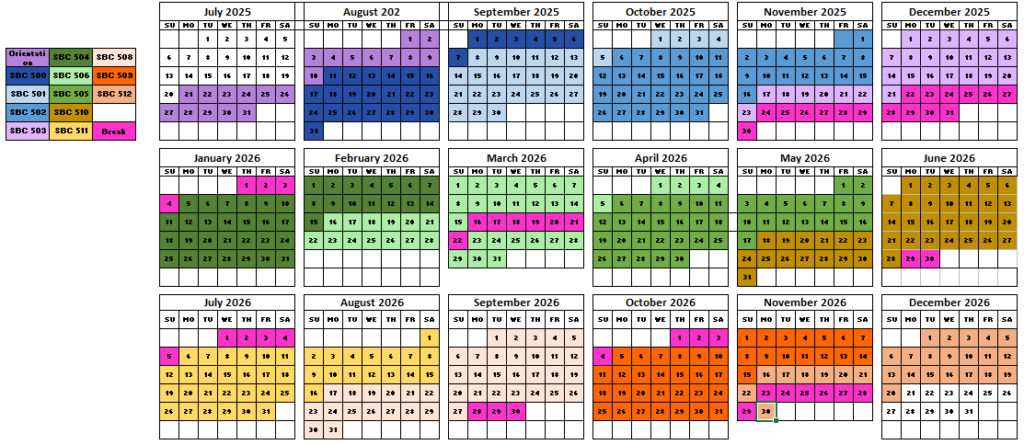



Expertise that takes your knowledge in strategic brand marketing up a level.

We’ve blended the best of two worlds. Learn from faculty from both the Department of Business Administration in the Gies College of Business and the Sandage Department of Advertising in the College of Media, as well as from brand marketing, advertising and multimedia industry leaders.
With a curriculum that combines elements of a traditional Master’s degree in business, marketing, and advertising, you will be prepared to:
- Strategically lead in an ever-changing, global multimedia environment
- Think in terms of developing innovative and integrative solutions
- Effectively manage brand messaging and content throughout diverse industries
- Respond effectively to new technologies, emerging media and market trends
- Become skilled in business management, leadership and orchestrating successful teams
- Be a global brand leader in integrated marketing and advertising communications
— COURSE LIST —
2 credits, Shachar Meron
2 credits, Aric Rindfleisch
3 credits, Steve Raquel
2 credits, Jacqueline Hitchon
3 credits, Rich Pieczynski
3 credits, Ewa Maslowska
3 credits, Patrick Vargas
3 credits, Michelle Nelson
3 credits, Mike Yao
3 credits, Amanda Mabry-Flynn
3 credits, Vishal Sachdev
2 credits, Dionne Clifton
Our SBC courses are taught by faculty from both the Department of Business Administration in the Gies College of Business and the Sandage Department of Advertising in the College of Media, as well as by brand marketing, advertising and multimedia industry leaders. To complete the MS SBC degree, students will take 32 hours of coursework – 16 hours taught by faculty in advertising/media and 16 taught by faculty in business administration. Non-degree students have the option of completing a three-course certificate or taking individual SBC courses.
2 credits, Shachar Meron
This course provides an overview of marketing and brand management: consumer analysis; brand positioning, integration, metrics and values.
2 credits, Aric Rindfleisch
Within the context of globalization, the course underscores the importance of understanding consumers’ values, attitudes, and behaviors for effective product positioning, brand value and effective marketing communications across borders. Focus on consumer behavior and brand positioning across local, regional, and global contexts. This course is designed to provide students with an advanced understanding of consumer behavior in a global context.
3 credits, Steve Raquel
This course examines how new and existing brands look at brand identity and brand building in today’s world. Tools and strategies are shared from start-ups and existing brands on how to maximize the ability to help craft or build a brand.
2 credits, Jacqueline Hitchon
The course explores how cultural, sociological and psychological factors shape consumer behavior. It will provide an overview of the key concepts of the discipline of consumer behavior and enable students to put into practice the newfound understanding of consumer behavior to shape branding strategies.
3 credits, Rich Pieczynski
Successful Strategic Brand Communication requires working on a series of projects. This course provides a socio-technical perspective to the management of projects. The technical dimensions deal with needs analysis, work breakdown, scheduling, resource allocation, risk management, and performance tracking and evaluation – within the allocated time frame and cost. The sociocultural dimensions include attributes of sound leadership, formation and management of teams, and managing customer expectations in order to formulate consistent, integrated campaigns across channels.
3 credits, Ewa Maslowska
The course will provide an overview of the key qualitative methods used to gain strategic insights into consumer behavior and to provide practice in planning research projects, data collection, and analysis.
3 credits, Patrick Vargas
This course will focus on the method and analysis for consumer insights but also for measuring effectiveness of various promotional strategies and campaign effectiveness. This includes an overview of quantitative research methods with emphasis on analysis and interpretation of data, and application to evaluating effectiveness of promotional strategies.
3 credits, Michelle Nelson
Familiarizes students with the topic of marketing communications and promotion management, and will teach students the steps for strategically planning a strategic brand communications campaign. The culmination of this course will be a campaign for a real-world client.
3 credits, Mike Yao
A brand’s image, reputation and presence can be significantly impacted by the rapidly changing digital media ecosystem, mainstream adoptions of AI, automation, immersive technologies, and swift shifts in audience behavior. This course provides an overview of the digital media landscape as well as practical insights for brand managers and marketing communication professionals to strategically leverage different media channels for different audiences and contexts. Focus on the underlying technological affordances of existing digital media platforms and emerging media technologies.
3 credits, Amanda Mabry-Flynn
Creating and executing successful messages across communication channels. Explores the development of persuasive messaging through theories of persuasion, consumer-information processing and theories of creativity. The course examines the relationship between creative strategy and creative executions while allowing students to practice creating content for traditional and non-traditional media. Strategic brand communication manages every message and contact point within an organization. Audiences include not only consumers, but employees, stockholders, the media, and others.
3 credits, Vishal Sachdev
Prepares students to utilize data for targeting and building customer and brand relationships, with an emphasis on new and emerging media. The students will get exposure to principles of working with structured data using relational databases and data warehouses. They will understand how to work with unstructured data from the web. They will also get exposure to select data mining methods relevant to data commonly worked on by marketing and communication executives and apply these concepts with cases/exercises during each of these modules.
2 credits, Dionne Clifton
This course serves as a capstone, requiring the student to demonstrate a mastery of knowledge in the primary areas of Strategic Brand Communication. The project is designed to allow the student to demonstrate his/her mastery of strategic brand communication, focused on Creating and Executing a Research Plan; Repositioning Analysis and Strategy; Strategic Brand Communication Strategy & Tactics; Media Strategy & Tactics; Campaign Monitoring and Evaluation.
IT'S EASY
TO APPLY
MASTER'S PROGRAM
To complete the MS SBC degree, students will take 32 hours of coursework. A professional capstone project is designed to give students practical skills in applying the lessons learned before graduation. All courses are required; there are no electives, as the emphasis in diverse global disciplines are built into the curriculum. Students must also maintain a minimum GPA of 2.75 to be eligible for graduation.
Get even more answers from our frequently asked questions page!
Additional application information can be found through the University of Illinois’ Graduate College. Please visit their web page for minimum requirements and application instructions.
Fall 2025 Application Deadlines:
Final deadline: July 15, 2025
Certificate Options
Strategic Brand Communication Essentials" Certificate (7 credits)
- SBC 501, Strategic Branding: Global Perspectives (2 credits)
- SBC 502, Entrepreneurship in Business (3 credits)
- SBC 503, Consumer Insights I (2 credits)
"Strategic Brand Communication Insights" Certificate (8 credits)
- SBC 503, Consumer Insights I (2 credits)
- SBC 506, Measurement and Evaluation (3 credits)
- SBC 505, Consumer Insights II (3 credits)
"Strategic Brand Communication Media and Analytics" (9 credits)
- SBC 506, Measurement and Evaluation (3 credits)
- SBC 509, Digital Media & Brand Reputation Management (3 credits)
- SBC 511, Strategic Analytics & Data Visualization (3 credits)
"Strategic Brand Communication" Certificate - Customizable - Choose 3 SBC courses excluding SBC 512
Non-Degree Enrollment Schedule:

NON-DEGREE
Certificate and Individual Course Options
Students can complete a three-course SBC certificate or take an individual course from the program. Click here to view the Non-Degree Enrollment Schedule.
CONTACT
If you have questions or would like additional information, please fill out the Request for Information form, schedule a call from the button below, or email Brooke Bear at blbear@illinois.edu.


